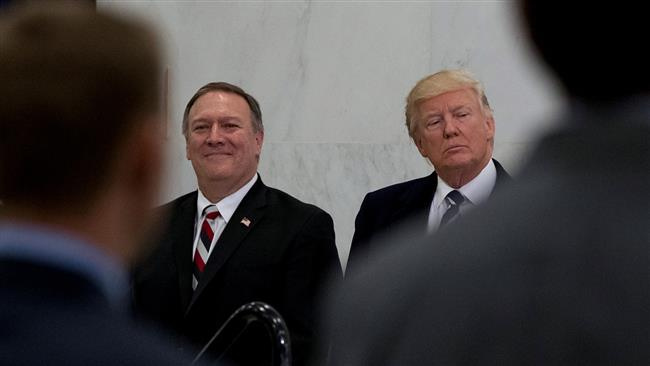Trump’s New Appointments, Challenges to Iran’s Foreign Policy

Professor Entessar is of this opinion that the Pompeo-Bolton team will present the most significant challenge to Iran's foreign policy in more than 30 years.
Trump has been the most rhetorically bellicose commanders in chief in modern American history since he took office 15 month ago, but at the same time he has been very cautious when it comes to using force.
The last couple of weeks could be seen as a major turning point in his presidency. In selecting John Bolton as his new national security adviser and Mike Pompeo as his secretary of state, Trump two the most hawkish Republicans in Washington.
To know more about the reasons behind Trump’s decisions and its possible effects on the US foreign policy in the Middle East, we discussed the issue with Professor and Chair of Department of Political Science and Criminal Justice, University of South Alabama, Prof. Entessar.
Here is the full text of interview with him:
Recently there have been some changes to Trump administration. During last 15 month since Trump came to power, Mr. Bolton is his third national security advisor. What are the main reasons behind so many unusual changes?
The list of top-level personnel changes that President Trump has made in his administration since coming to power has been extensive and unusual in the recent history of the American presidency. The changes in Trump's national security advisers certainly fit the governing style of Donald Trump's leadership. A lot of these changes have been rather impulsive and personal in nature and not necessarily based on significant policy differences between Trump and his subordinates. We should not be surprised to see vacillations of this nature in months or years ahead.
Will these changes affect the US foreign policy toward Turkey? Can these changes help two sides to resolve the differences or not?
These changes may affect the US-Turkish relations only marginally. Washington's relations with Ankara are complex and are affected by a range of variables. They do not change drastically based on personnel changes in the executive branch of the United States government.
Will these changes affect the US policy in Syria and its support to Syrian Kurdish groups like YPG and PYD?
I don't think the Trump administration has had a clear policy towards the Syrian Kurds. Washington's policies with respect to Syria and the Syrian Kurds have been in the constant state of turmoil for some time now. There is, of, course, a degree of coordination between the US, Israel and Saudi Arabia but so far Washington has been unable to chart a clear policy towards Syria and its main Kurdish parties.
It is said the new Trump team will increase the pressure on Tehran. Can this fact affect Tehran-Ankara regional and economic cooperation?
Trump's new foreign policy team will certainly increase pressure on Tehran from all angles, including putting more pressure on regional countries and US allies to distance themselves from Tehran. This will have a negative impact on the Tehran-Ankara cooperation not only in economic and trade matters but also in other areas. The Pompeo-Bolton team will present the most significant challenge to Iran's foreign policy in more than 30 years.
Will Trump’s new changes pave the way for cancellation of the JCPOA?
For all intents and purposes, the Trump administration has already withdrawn from the JCPOA, albeit informally. Trump's new foreign policy team will accelerate the practical demise of the JCPOA. For Iran, it shouldn't matter if the JCPOA's cancellation is announced formally or not. From Washington's vantage point, the Iran nuclear agreement has already been a dead deal. Rather than sitting on the side and incessantly arguing about what Trump's intentions towards the JCPOA are or will be every three or four months, Tehran needs to move on and devise and implement a post-JCPOA foreign policy. Otherwise, Iran's foreign policy will remain a hostage to President Trump's whims for the foreseeable future.
Interview by Payman Yazdani
Source: Mehr News

